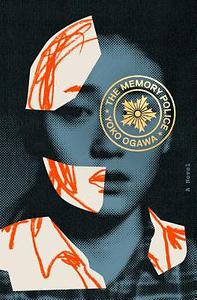You need to sign in or sign up before continuing.
Take a photo of a barcode or cover
a solid 3 stars. i’ve read this a while ago so i’m a bit hazy on the details.
i had higher expectations of this book. the concept is so interesting and it genuinely made me ponder upon the place of our memories in our lives and how delicate they are.
really, what are we without or memories? does anything truly belong to us if our memories can be taken away?
but this book does not really focus on memories, not exactly. it claims to be about “forgetting” but most of the time, it’s really the meaning given to things disappearing rather than them actually forgetting. in fact, this was one of my biggest issues with the book: most of the time it reads off as they know and remember what certain things are but they just can’t conceptualize them. this is fine except, that defeats the purpose a little.
there is a lot of inconsistency with the concept: why does she refer to the “hat maker” as hat maker? why does the old man live in the ferry? but most importantly: if they can /kinda/ remember these things, why can’t they recreate them? it’s not like because a concept disappears, it can’t re-emerge. take perfumes for instance, wouldn’t humans just create something new to smell good? most of these objects are created to fulfill a need and those needs in question have, in fact, not disappeared.
all in all, i did like the book. it gave me so many interesting ideas about our memories, the meanings we give to things, etc. but i did think the concept was quite inconsistent at times and did not make sense.
(note: i will improve this review once i go through my notes, i think i can explain myself better)
i had higher expectations of this book. the concept is so interesting and it genuinely made me ponder upon the place of our memories in our lives and how delicate they are.
really, what are we without or memories? does anything truly belong to us if our memories can be taken away?
but this book does not really focus on memories, not exactly. it claims to be about “forgetting” but most of the time, it’s really the meaning given to things disappearing rather than them actually forgetting. in fact, this was one of my biggest issues with the book: most of the time it reads off as they know and remember what certain things are but they just can’t conceptualize them. this is fine except, that defeats the purpose a little.
there is a lot of inconsistency with the concept: why does she refer to the “hat maker” as hat maker? why does the old man live in the ferry? but most importantly: if they can /kinda/ remember these things, why can’t they recreate them? it’s not like because a concept disappears, it can’t re-emerge. take perfumes for instance, wouldn’t humans just create something new to smell good? most of these objects are created to fulfill a need and those needs in question have, in fact, not disappeared.
all in all, i did like the book. it gave me so many interesting ideas about our memories, the meanings we give to things, etc. but i did think the concept was quite inconsistent at times and did not make sense.
(note: i will improve this review once i go through my notes, i think i can explain myself better)
i've heard a lot about this book especially on aesthetic!girl tiktok and needless to say i was quite disappointed. maybe im just DUMB KDKSK but all that was left with me when i finished this book was an unsettled feeling. it was very :((( but like.... that's it. i would've loved to know more about the memory police and why the things disappear and everything but i understand the ~vibes~ of the book. it's just not for me
reflective
sad
slow-paced
Plot or Character Driven:
A mix
Strong character development:
No
Loveable characters:
No
Diverse cast of characters:
No
Flaws of characters a main focus:
No
dark
emotional
reflective
sad
slow-paced
Plot or Character Driven:
A mix
Loveable characters:
Yes
dark
emotional
reflective
medium-paced
Plot or Character Driven:
A mix
Strong character development:
No
Loveable characters:
Complicated
Diverse cast of characters:
No
Flaws of characters a main focus:
Yes
this book was just not for me. it was beautifully written with amazing prose but there was some pretty glaring inconsistencies within the rules of the world building. it didn’t make sense at times, there was not much of a plot, and there was no resolution. it was a depressing fable which is great if you’re into that kind of thing but personally i’m good on that.
dark
reflective
sad
tense
medium-paced
Plot or Character Driven:
A mix
Strong character development:
Yes
Loveable characters:
Yes
Diverse cast of characters:
Complicated
Flaws of characters a main focus:
Complicated
challenging
dark
emotional
mysterious
reflective
sad
tense
slow-paced
Plot or Character Driven:
Plot
Strong character development:
Yes
Loveable characters:
Yes
Diverse cast of characters:
No
Flaws of characters a main focus:
No
Deeply strange and haunting. I don’t know what to make of it, and it would be hard to say that I *liked* it, but it pulled me in.
challenging
dark
mysterious
reflective
fast-paced
This is one of those books I wish I could take a class on. Mysterious but engaging, dark and sad. It’s going to stick with me for sure.
I didn't really know what to expect from this book, but it is undoubtedly going to be one of my favorite books that I read this year. It was on my to-be-read list because it piqued my interest, but it was selected for a book club for which I am a part of the group chat, so I read it. Although the language is pretty simple, the structure is quite complex with many layers of storytelling and unique authorial choices. There are many questions that will not be answered for you as you read, but I can almost guarantee that you will not want to put this down. Ogawa was heavily inspired by The Diary of Anne Frank for this book, and it is extremely evident that that is the case. The way that she blends commentary on memory along with commentary on authoritarian states is impressive, especially taken into account the complex story structures she employs. Her prose and musings on what memories mean for humanity are poignant and sad; however, I hope that it charges myself and others to incorporate practices that savor memories and encourage us to live in the moment. This book did not end the way that I expected, but I know I will be thinking about this book for a while to come. I highly recommend that everyone read this book, and I hope to make it a part of my curriculum.






